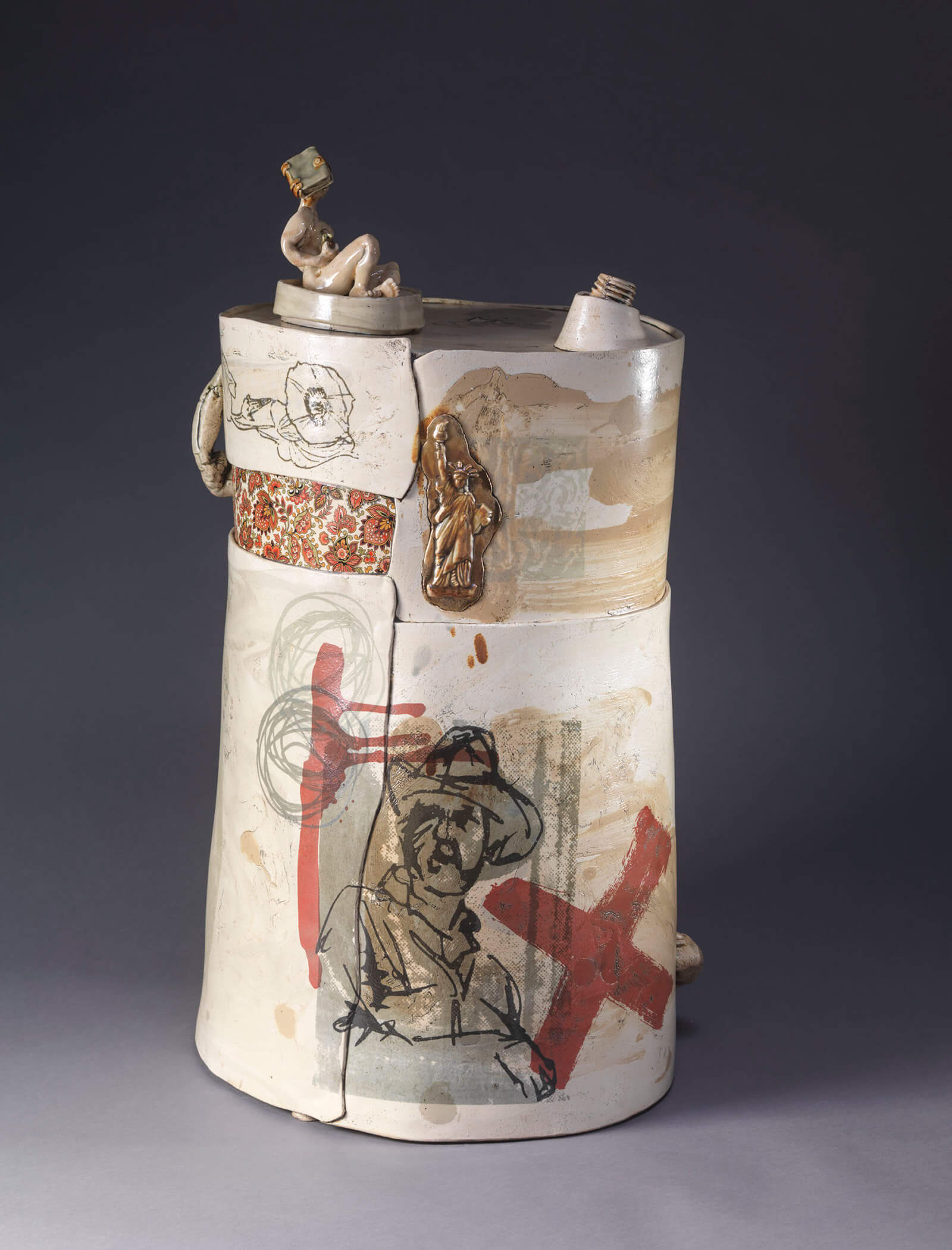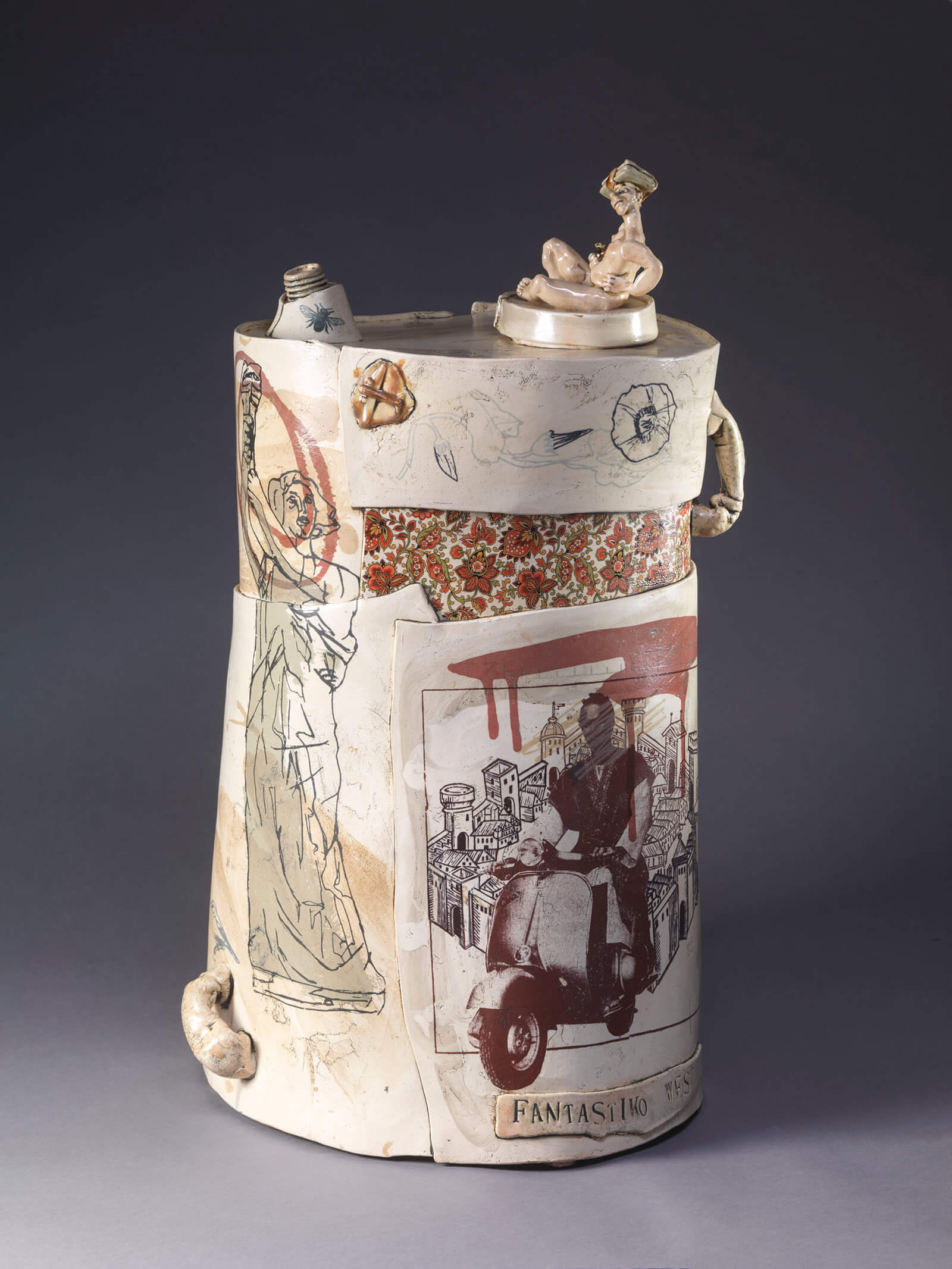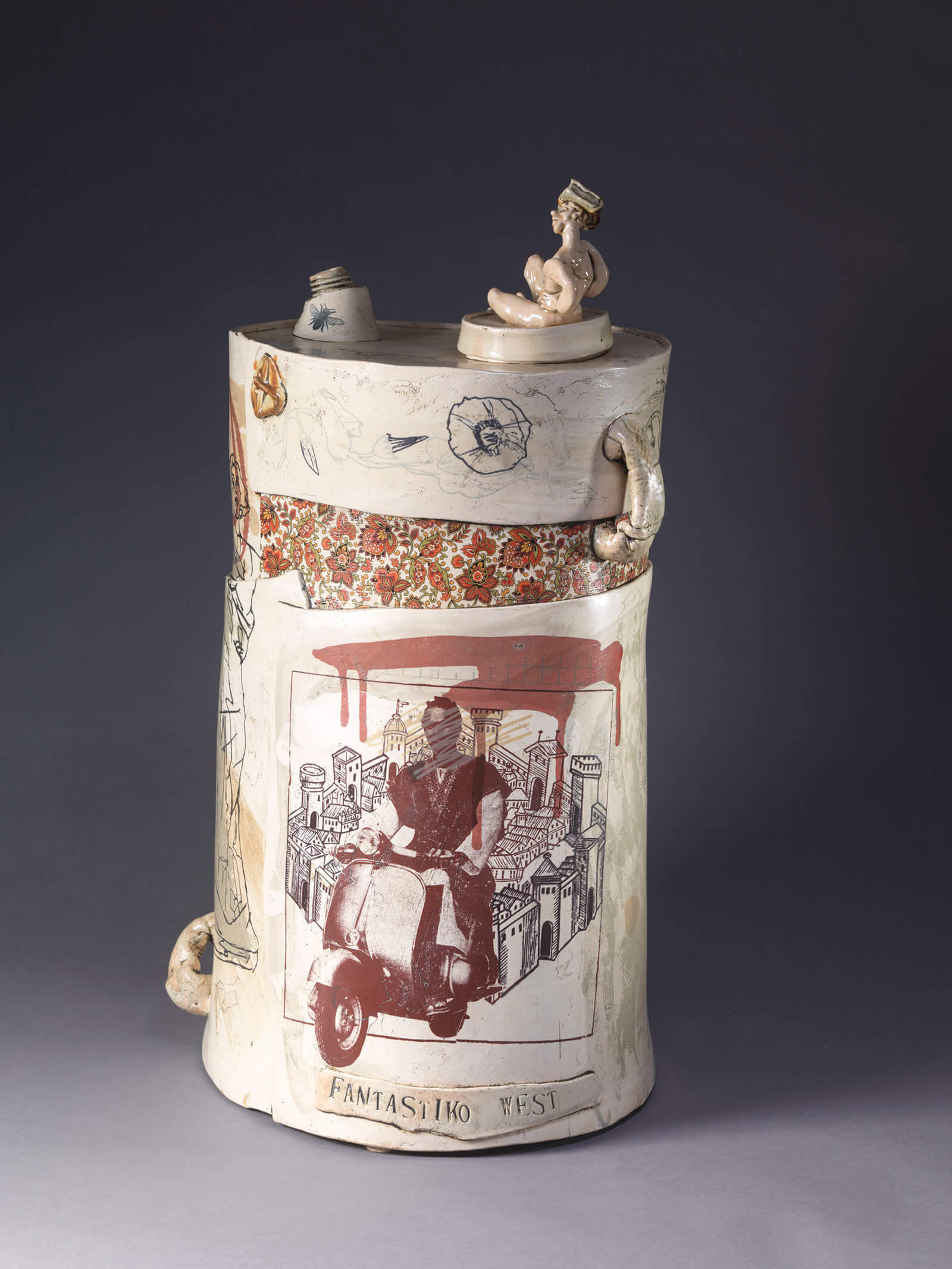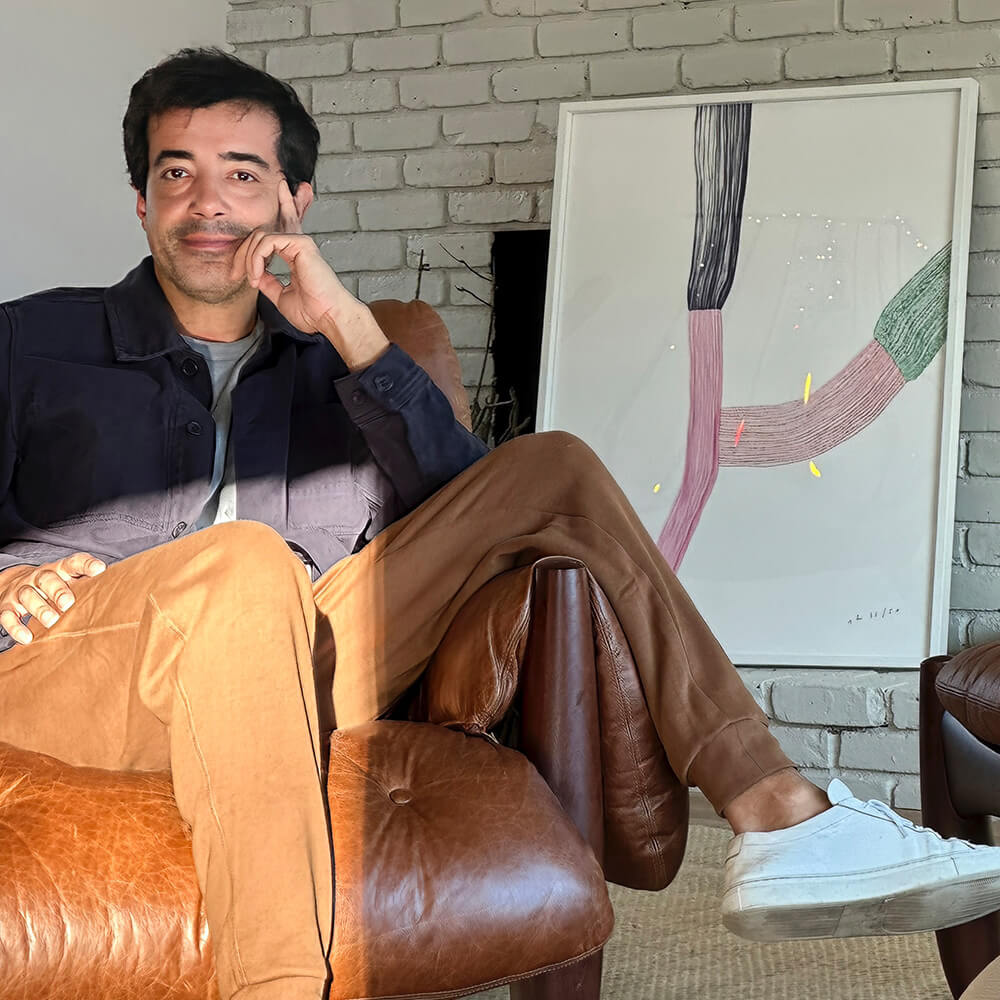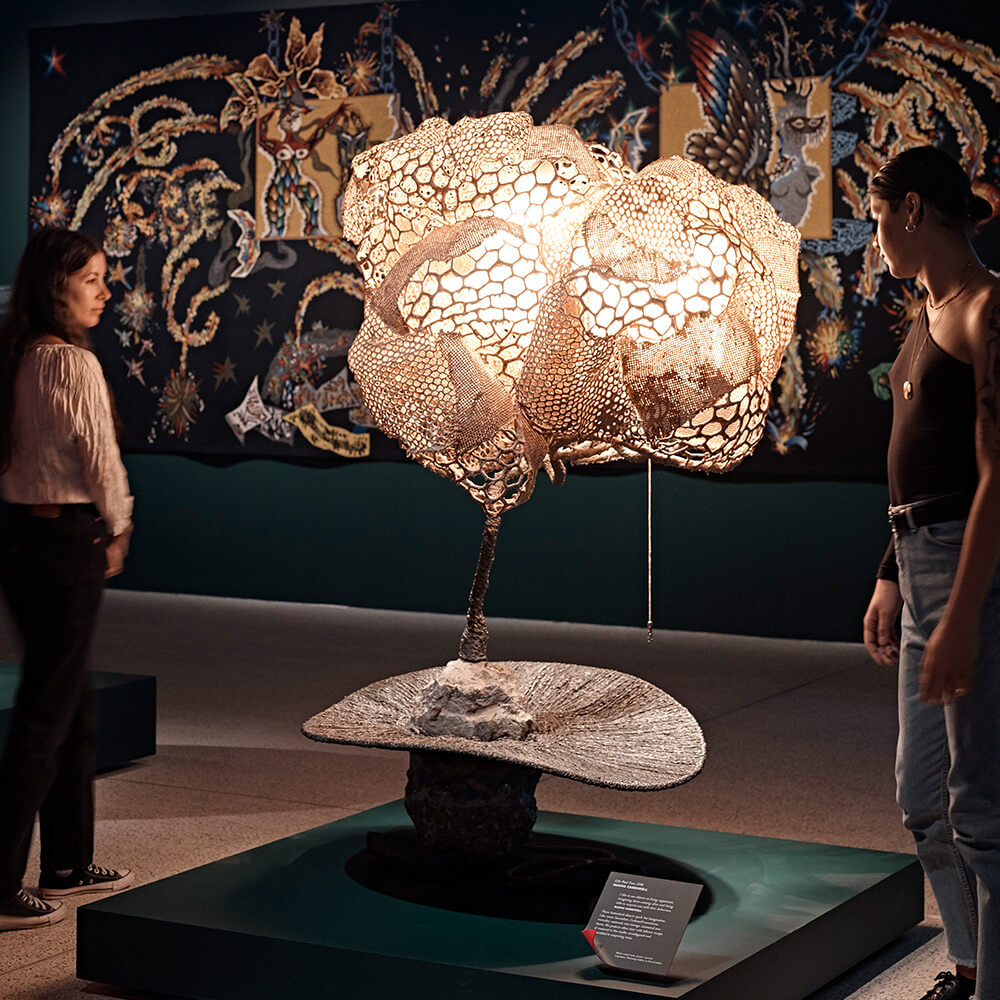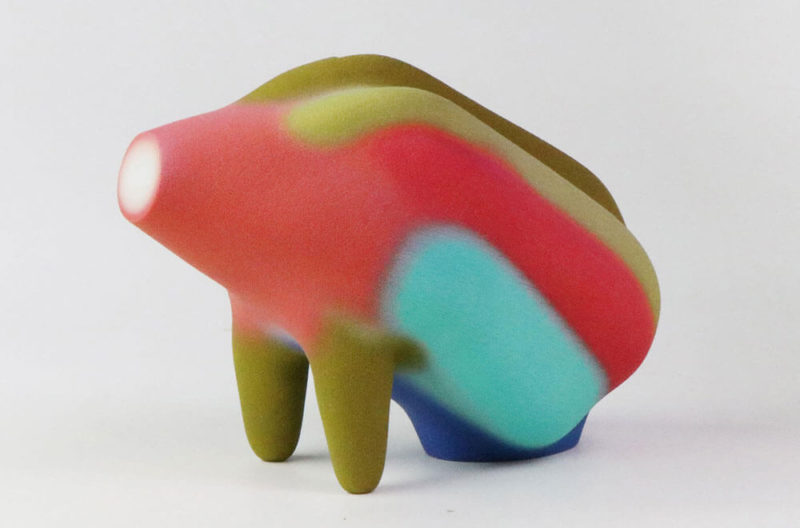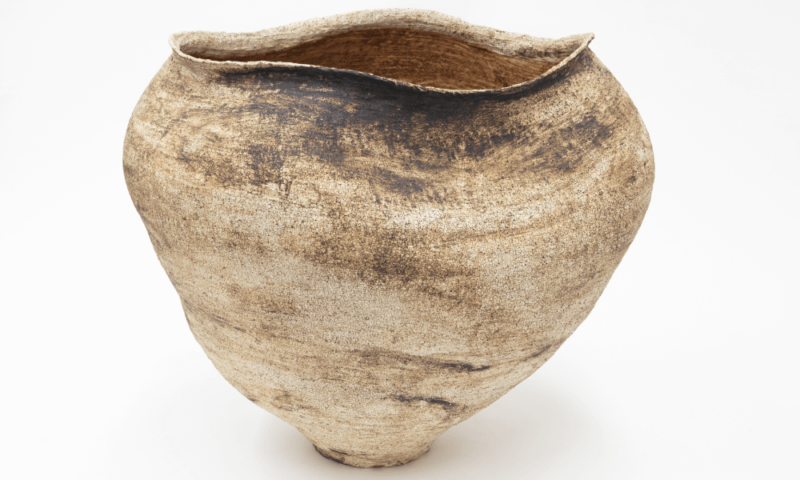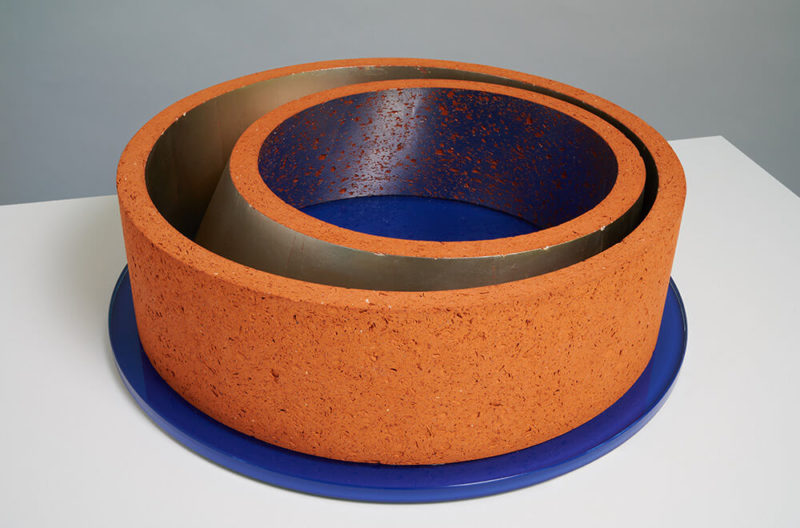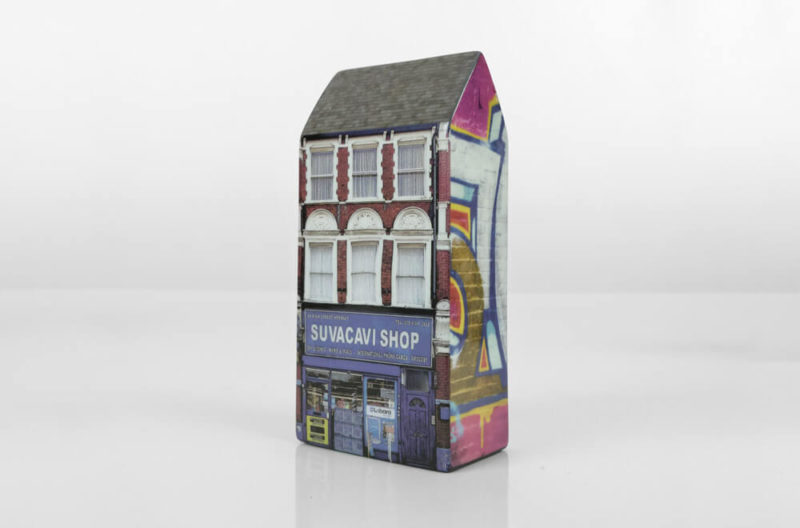‘Fantastiko West’, 2001
Stephen Dixon
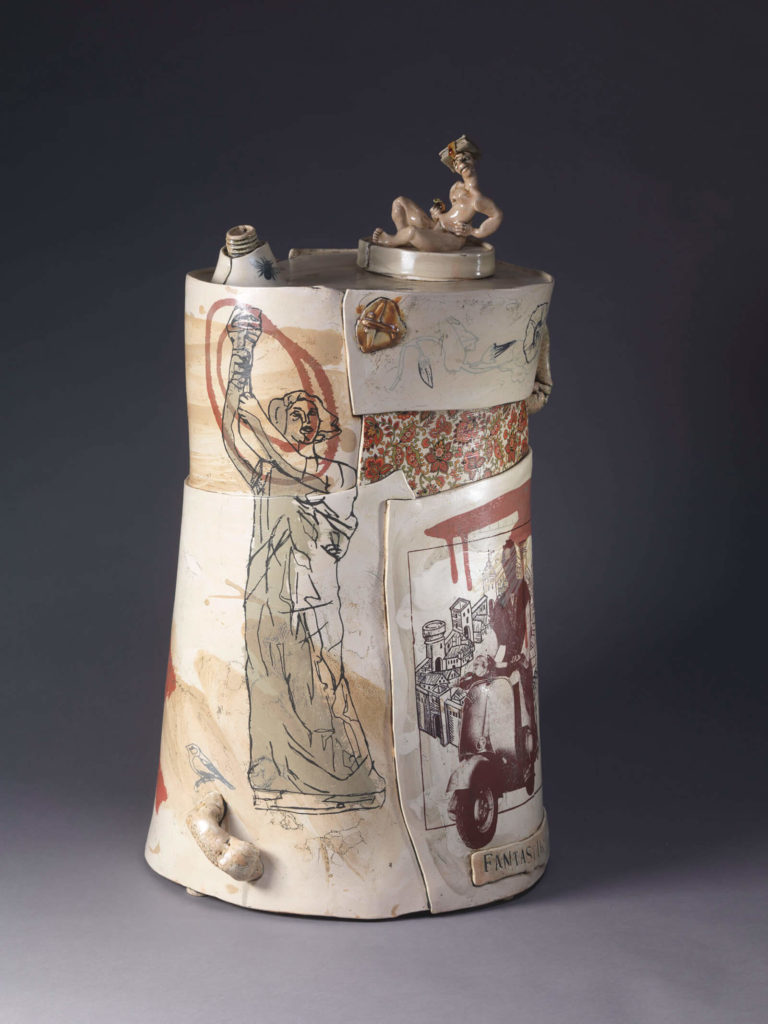
Stephen Dixon, ‘Fantastiko West’, 2001
COURTESY: Messums
YOU MIGHT THINK that ceramics are the most docile of decorative objects: functional, domestic, polite. But pottery has a long history of raucous satire and political and social comment. As a medium, it cuts across classes and can reflect multiple perspectives; its purposes ranging from the most humble to audacious sculpture, as it infiltrates our lives from the kitchen to the gallery. Stephen Dixon, today Professor of Contemporary Crafts at Manchester School of Art, says, “From the start, I was never interested in making functional pieces and [was] more interested in telling stories and making statements.” It was while he was in the ceramics department at the Royal College of Art, from which he graduated in 1986, that Dixon realised that he could express his strong political views about contemporary events through clay.
‘Fantastiko West’ is a broadside against American involvement in Iraq in the build-up to the Iraq War, with side-swipes at other repressive and aggressively anti-democratic regimes. It is one of a series of large slab-built pots modelled on oil cans, an emblem for Dixon of the folly of western interference in the Middle East. This robustly-modelled, lop-sided clay oil canister has roughly-squeezed handles and a snout-like nozzle. Through the application of water-based screen printed transfers to ceramic – a technique in which he has become one of the world’s experts – Dixon has partially wrapped the can in a genteel flowery pattern, evoking the cosy tradition of historic British ceramics. On top of this are collaged a range of disruptive images: Charlton Heston on a Vespa dressed as Moses, in the Hollywood movie The Ten Commandments, in front of a medieval woodcut of Jerusalem; a cowboy representing the then recently re-elected George W. Bush; Tiananmen Square’s besieged Goddess of Democracy and Freedom; America’s own betrayed Statue of Liberty. A warplane flies by. Some beautifully hand-drawn bindweed sinisterly stretches out. There are drips of blood-red paint. Atop them all, on the can’s lid, in a cheeky pastiche of classical motifs, lies the languorous figure of Adam, clutching the forbidden apple, a Bible on his head, an emblem of authoritarian repression.
The whole object quivers with rage and wild humour. It is viewable this week online as part of Messums Wiltshire’s latest exhibition, British Studio Ceramic. This particular series of objects culminated in ‘The Sleep of Reason’, a twenty-year retrospective of Dixon’s political pots showcased at Manchester Art Gallery in 2005. Since then, Dixon has moved away from the clay vessel as a vehicle for political statement, towards intervention and installation works such as ‘Bush Pantry’ (2007), ‘Monopoly’ (2009) and ‘Letters From Tripoli’ (2011). As he puts it, “I see myself as a political commentator first and a ceramist second.”
-
Stephen Dixon, ‘Fantastiko West’, 2001
COURTESY: Messums
-
Stephen Dixon, ‘Fantastiko West’, 2001
COURTESY: Messums
-
Stephen Dixon, ‘Fantastiko West’, 2001
COURTESY: Messums
Messums Wiltshire: British Studio Ceramic
